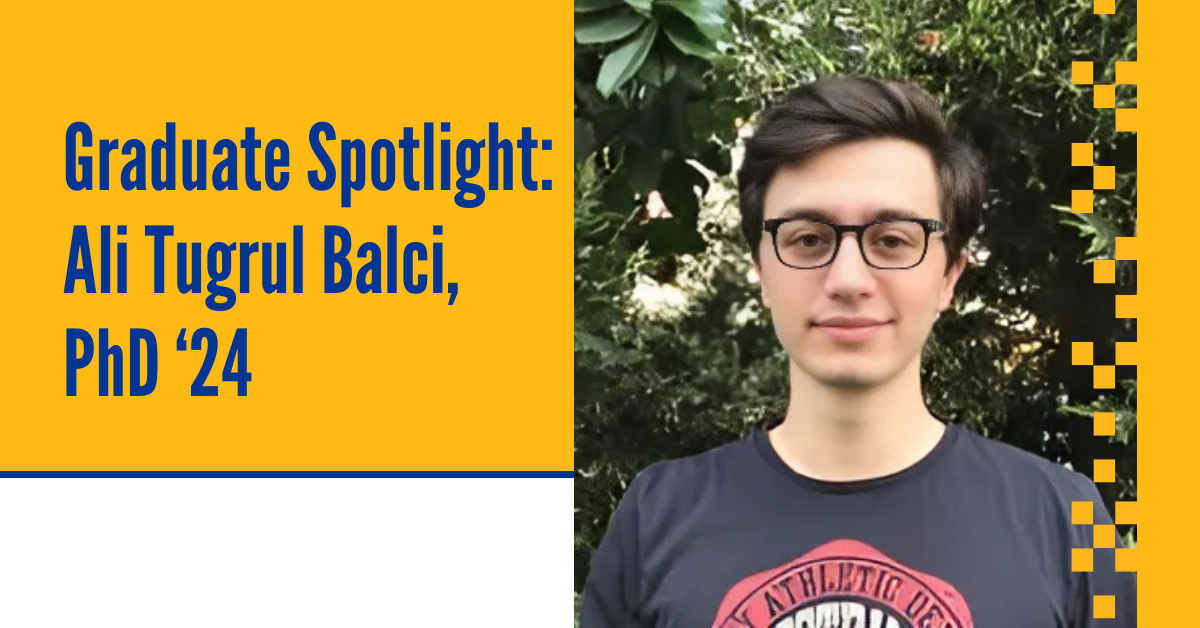When Ali Tugrul Balci moved from bustling Istanbul to the quiet charm of Pittsburgh, he didn’t expect to find a second home. But through his PhD program, he discovered both a supportive community and a passion for cutting-edge computational biology research.
Balci, who graduated from the Joint Carnegie Mellon-University of Pittsburgh PhD Program in Computational Biology (CPCB) in December, was drawn to Pittsburgh for graduate school. He wanted to work at the intersection of genomics and computer science, and a computational biology degree seemed like the perfect union of those interests.
“You try to do mathematical work to discover something,” Balci said. “When it works, it’s very magical because it has real world applications like finding a drug.”
The vibe of the city of Pittsburgh was an unexpected plus to this move. During his time at Pitt, Balci enjoyed exploring local parks and taking walks in the Shadyside neighborhood.
“If we have a scale between really big cities and rural areas, Pittsburgh is a nice in-between region because you can do a lot of things, but there aren’t as many people as big cities like Istanbul or New York,” he said.
Balci did his PhD research in Assistant Professor Maria Chikina’s lab on sequence-to-function models, a kind of machine learning model that uses sequences of data to predict functions.
“It’s a new thing, and I think it’s exciting because there are a lot of things we don’t know,” he said. “We train the model, and then we try to dissect it and get some insight from it, which is also challenging.”
Balci credits Chikina’s mentorship as giving him the encouragement he needed to successfully finish his PhD.
“Maria is very positive and very encouraging,” he said. “If you present her a result that shows something is not working, she still finds a way to make it work.”
He also praised his CPCB cohort for making him feel at home in a new country.
“The environment was so nice, like everyone was helping each other,” he said. “We spent nights working on homework together. Having a very friendly environment helped me a lot because it was my first time in the United States.”
Balci is currently applying for postdoctoral positions where he can continue his research on sequence-to-function models. He is excited for the future of the field and the opportunity to stay curious.
“There are a lot of new things to discover,” he said. “People are still figuring out what are the best models. The challenge is the thing I enjoy; each day is like a new frontier.”
What is your advice to prospective CPCB students?
“Find a good advisor. If you’re comfortable working with that person, you can master anything.”
What was the most rewarding part of earning your PhD?
“A PhD was very emotionally taxing, but I’m glad I saw it through. I think it’s a big accomplishment not just in terms of academia, but it’s a big life step in general.”
What was your favorite class in the CPCB program?
“I liked Convex Optimization with Ryan Tibshirani. Every project I worked on was some kind of optimization problem. In that class, we learned what is the most efficient way of solving those kinds of problems.”


